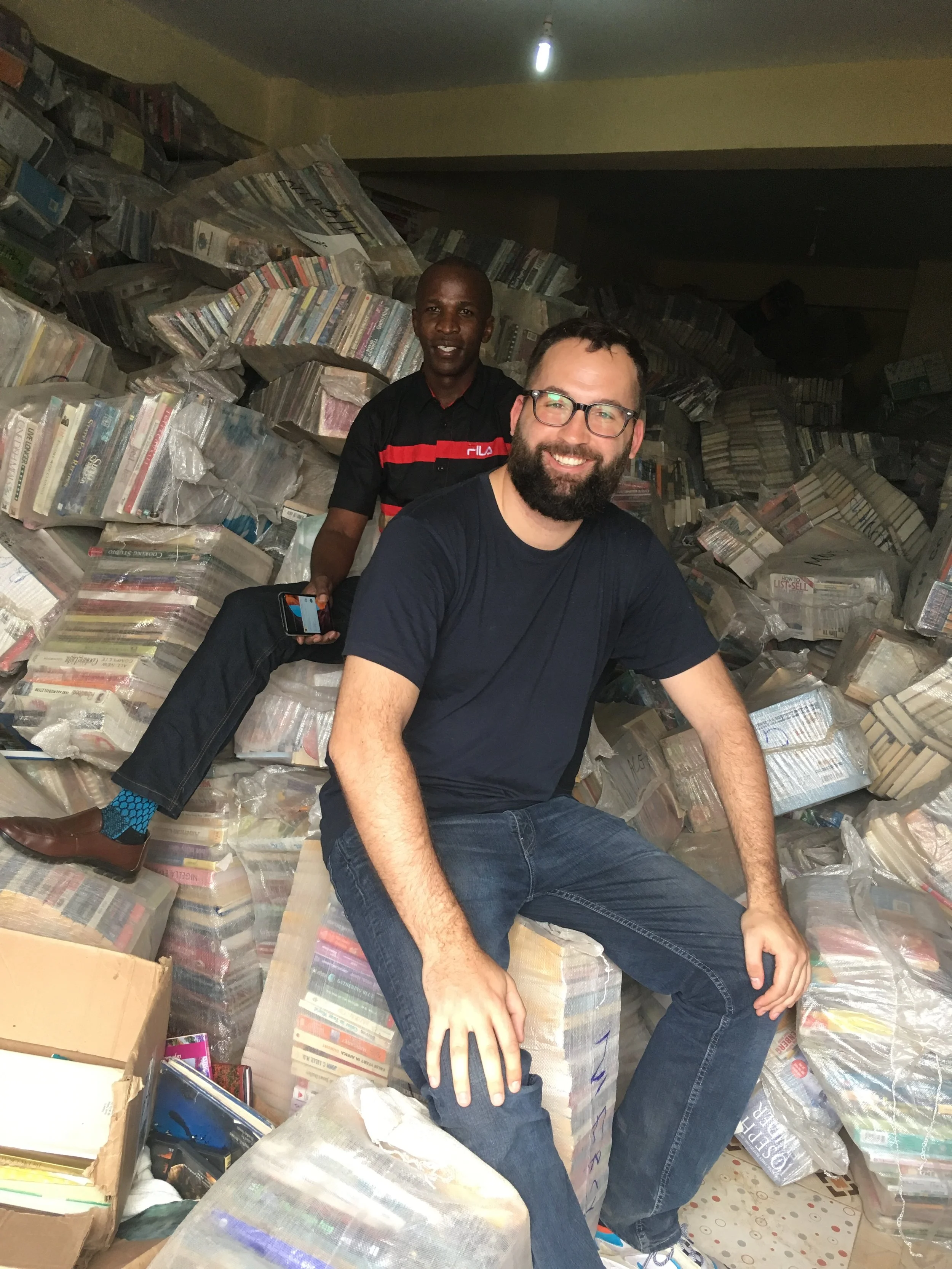5 Lessons I Learned About Starting NGOs
In 2018, while studying for my MBA at the University of Sydney, I co-founded the South Sudan Library Foundation (SSLF) from halfway around the world. Over the past few years, I’ve worked on nonprofit initiatives across South Sudan, Sudan, Zambia, Ethiopia, Mexico, the United States, Australia, Iraq, Syria, Fiji, Papua New Guinea, and beyond—covering education, human trafficking, agriculture, unexploded ordnance removal, and water, sanitation, and hygiene (WASH).
Here’s what I’ve learned about starting an NGO—and what I wish I’d known when I began.
What motivated me to start an NGO in South Sudan
My initial motivation for working in South Sudan came from a desire to help those who needed it most--the people of this country had virtually no chance at all. The literacy rate was abysmal. There wasn’t even electricity or running water nationwide; there was a whopping 26 miles of paved roads within the entire country.
I wanted to learn more about the situation in South Sudan, so I talked to people living there and tried to gather as much information as possible. By networking with different people, I better understood the situation and what was happening on the ground.
I built a relationship with Yawusa Kintha, who was a friend of Mbonisi Sibanda (one of my MBA classmates), and we started from there.
Don’t Do It Alone
Starting and running an NGO solo is a fast track to burnout. You need a committed team for both daily operations and long-term strategy.
For SSLF, my co-founder, Yawusa Kintha, has been my sounding board and motivator from day one. We’ve relied on:
Local legal expertise – Our South Sudanese attorney handled incorporation, compliance, and risk mitigation.
Trusted suppliers – We sourced wholesale books from Bellaplace Books in Nairobi, thanks to a street vendor who connected us for a finder’s fee.
Logistical support – Yawusa’s uncle transported our books from Nairobi to Juba.
When challenges came—like corrupt officials inventing infractions to demand bribes—having a team meant we could problem-solve quickly and stay focused on the mission.
Pro tip: In Africa, if you want the best wholesale price, ask a street vendor to connect you with their supplier. Pay them for their time—it’s worth it.
Buying book wholesale in Nairobi. One procurement tip, if you’re trying to find a good wholesale price in Africa, go to a street vendor and pay them a finder’s fee to take you to their wholesale merchant. I found Bellaplace books by asking street-side book sellers where they bought their books.
Focus on Sustainability
Feel-good projects are great, but sustainability is what keeps an NGO alive. That means:
Having a clear, achievable mission.
Setting measurable goals.
Diversifying funding (grants, product sales, partnerships).
When I started SSLF, I wanted a full library with a computerized checkout system. But our core mission—providing access to books—didn’t require that. I realized we could partner with existing schools instead of building our own facility. This would have saved money, staff costs, and time.
Key mindset: Use first-principles thinking. Strip your mission down to the core and build from there.
Keep Things Simple
In the beginning, we had ambitious plans: a state-of-the-art library serving hundreds of students. Reality forced us to simplify—focusing on sending books and resources to organizations already serving the community.
This made us leaner, faster, and more adaptable. It also revealed insights we wouldn’t have had otherwise—like discovering our library became a crucial community resource in the summer because of its cooling system, Wi-Fi, and electricity.
Start small: It’s easier to adjust, make better decisions, and avoid overwhelm.
Be Flexible
Things will not go as planned. We initially aimed to fund SSLF through corporate sponsorships and donations. That wasn’t sustainable, so we pivoted to book sales, grants, and other income streams.
Flexibility also means being open to unexpected opportunities. Some of SSLF’s best projects came from saying “yes” to ideas that weren’t in the original plan.
It Takes Time
Building an NGO takes time—years, not months. You’ll need patience to:
Earn community trust.
Build credibility with donors and partners.
Develop a reputation for delivering results.
One volunteer management tip: Don’t just assign tasks. Ask volunteers what they want to do. Giving them ownership keeps them engaged and motivated.
Conclusion
Running an NGO is hard, but it’s worth it. If you’re thinking about starting one:
Start small.
Be consistent.
Be ready to adapt.
There will never be a perfect time to begin—so start now, learn as you go, and stay focused on the mission.





